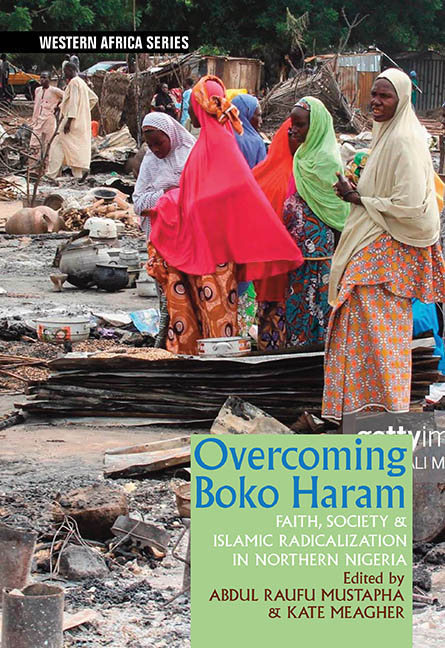Book contents
4 - ‘Boko Halal’ Limits to radicalization in southern Niger Republic
Published online by Cambridge University Press: 21 March 2020
Summary
Introduction
Southern Niger and northern Nigeria are the two main parts of the Central Sudan, an area of West Africa that extends roughly from the Mossi Plateau to Lake Chad, and in which populations share much in common in terms of culture, language, economic interactions, political history and social relations. Despite the national border cutting through it, separating Nigeriens from Nigerians, the Central Sudan remains a coherent unit in which networks of all manner of exchanges and contacts maintain, as of old, an apparently seamless web of human relationships. In a very tangible sense, as we will see in this chapter, southern Niger is only the northern fringe of northern Nigeria, especially owing to the dominance of Hausa language and culture, and of the Islamic religion. Given this general context, one would expect the current violent crisis in northern Nigeria to have a direct impact on southern Niger and indeed, to result in copycat actions there, since it is highly likely that radical ideas and sentiments originating in parts of northern Nigeria are broadcast throughout the Central Sudan. So far, however, and despite a small number of incidents, Niger remains largely unscathed. Even the incidents just mentioned occurred either in isolated areas in the far-eastern Diffa region, or in connection with the Malian and Libyan, rather than the northern Nigerian, crises. It is thus particularly interesting to study contexts in southern Niger that might illuminate the relative but very real calm experienced there. Why has religio-political radicalism been so muffled in southern Niger compared to northern Nigeria? What specificities in the Nigerien context would explain that ideas and sentiments that result in violence and mayhem in northern Nigeria seem to lose their teeth in Niger? To respond to these and related questions, I will focus on two Nigerien regions that share a border with Nigeria: Diffa and Maradi – creating a lens into the factors underpinning the contrast between the two countries.
Northern Nigeria is bordered by five of Niger's eight administrative regions, belonging to all four larger geopolitical sections of the country. These are, from west to east, Dosso (west), Tahoua (north), Maradi and Zinder (central), and Diffa (east). While also describing the overall Nigerien context, I have focused on Diffa and Maradi for a number of obvious reasons.
- Type
- Chapter
- Information
- Overcoming Boko HaramFaith, Society and Islamic Radicalization in Northern Nigeria, pp. 93 - 130Publisher: Boydell & BrewerPrint publication year: 2020

